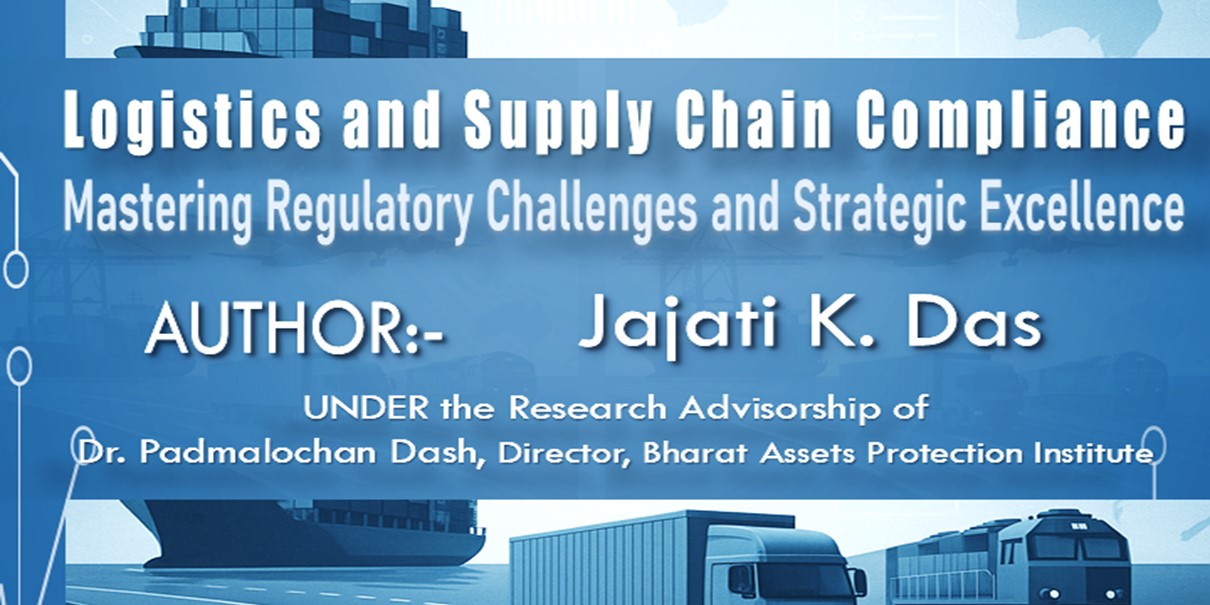In today’s interconnected world, Strategic Logistics & Supply Chain Sustainability is at the heart of national and global resilience. These systems are not just the backbone of our economy—they are the essential networks that facilitate the movement of goods, services, and critical resources across borders. With supply chains growing increasingly complex and dynamic, these systems are more vulnerable than ever to disruptions, ranging from cyberattacks and natural disasters to geopolitical shifts.
The importance of focusing on Strategic Logistics & Supply Chain Sustainability can’t be overstated. As global trade and regional supply chains evolve, issues such as multi-modal transport, green logistics, and traceability are becoming more pressing. Addressing these issues demands innovative thinking and collaboration from all sectors—technology, policy, engineering, and environmental sciences—so we can build systems that remain robust and responsive in the face of evolving challenges.
The Bharat Assets Protection Institute’s research agenda for Strategic Logistics & Supply Chain Sustainability is designed to drive forward holistic, sustainable, and resilient logistical infrastructures. We aim to foster systems that can withstand disruptions and support long-term growth, contributing to national security, economic stability, and environmental sustainability.
Overview of the Research Focus on Strategic Logistics &
Supply Chain Sustainability
At the core of the Bharat Assets Protection Institute’s research lies a deep exploration of strategic logistics and supply chain sustainability. This research covers a wide range of critical issues that impact the flow of goods and services across regions—issues that are essential for national security, economic growth, and environmental preservation. The study of logistics systems spans multiple disciplines, including civil-military logistics, green logistics, and the integration of multi-modal transport corridors.
This research agenda looks into civil-military integration, exploring how defence and civilian logistics systems can be better aligned for national preparedness and crisis response. Green logistics focuses on reducing environmental impacts while ensuring logistics networks are efficient and cost-effective. Additionally, we examine multi-modal transport corridors, where different transportation modes—road, rail, air, and sea—work together seamlessly, improving the integration and efficiency of transport systems.
We also explore the use of blockchain technology to enhance supply chain traceability, ensuring transparency and security throughout the entire supply chain. The issue of last-mile connectivity and urban freight systems is critical to the smooth functioning of cities, and this research looks into optimising delivery systems while tackling urban congestion and sustainability challenges. The potential for aerial logistics systems, such as cargo drones and AI-managed airfreight, is also a key area of focus for the future of logistics.
Finally, we explore the integration of the National Logistics Portal with the Gati Shakti initiative, looking at how to harmonise logistics infrastructure across India to ensure smoother operations at both the national and regional levels. This comprehensive approach aims to create resilient, adaptive, and sustainable logistics systems that can handle both current and future challenges.
Inviting Scholars, Policy Experts, and Stakeholders
This research focus is a call to action for scholars, policy-makers, logistics experts, technologists, and system analysts. The Bharat Assets Protection Institute welcomes collaborations from a wide array of disciplines, encouraging contributions that address the critical needs of strategic logistics and supply chain sustainability.
We invite researchers to explore a broad range of topics—quantitative supply chain risk analysis, logistics cybersecurity, AI-driven logistics systems, green supply chains, and blockchain for traceability. Researchers can delve into how AI and machine learning can improve supply chain forecasting or how drone technologies could revolutionise airfreight systems. There's ample opportunity to explore the integration of multi-modal transport networks and contribute to national security by studying civil-military logistics systems.
The Institute also invites research on innovative solutions for last-mile connectivity and urban freight systems, with a focus on sustainability and efficiency. Additionally, contributions around green logistics are particularly welcome, addressing how we can reduce the environmental impact of logistical systems while maintaining efficiency.
The research agenda encourages advanced theoretical engagement in areas like resilience theory, governance systems, and socio-technical design. We are also looking for practical frameworks to support real-time incident response, CIP readiness indexes, and sector-specific risk taxonomies. All these efforts will contribute to policy development, governance innovations, and implementation models that can shape India’s logistics strategy.
Importantly, the Bharat Assets Protection Institute calls for contributions that will help create living frameworks—systems that integrate ethical design, anticipatory governance, and innovative technology solutions for the logistics sector. Contributions can range from policy papers and whitepapers to operational models and sectoral playbooks that will directly inform governmental and industrial decision-making.
By participating in this research initiative, scholars and experts will help shape India’s future logistics landscape, ensuring that our systems remain resilient, sustainable, and efficient as we face the challenges of tomorrow.





